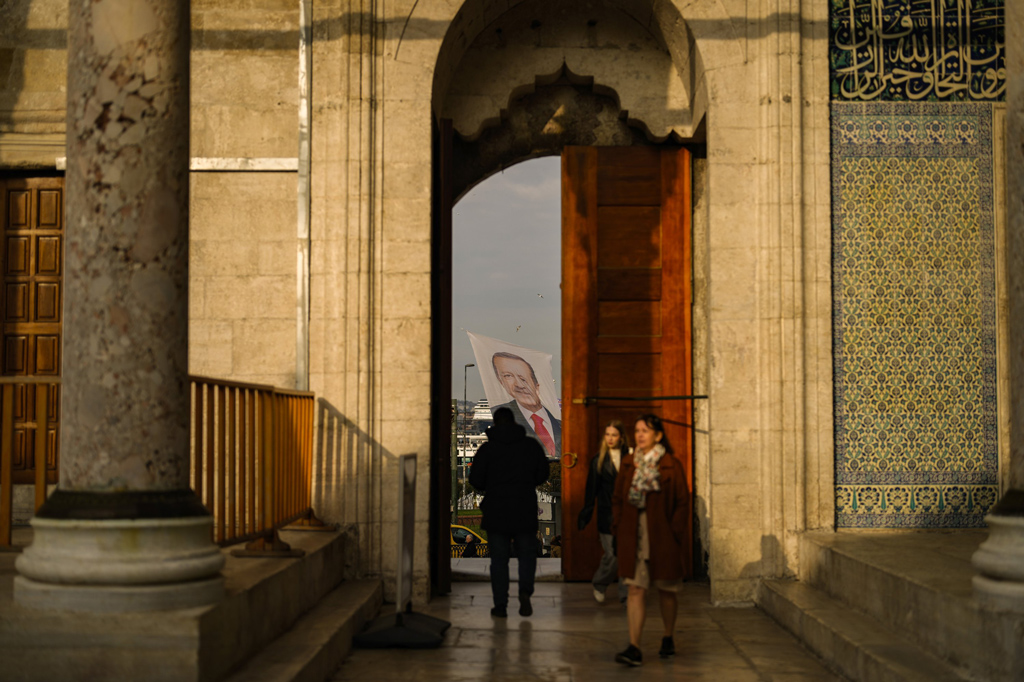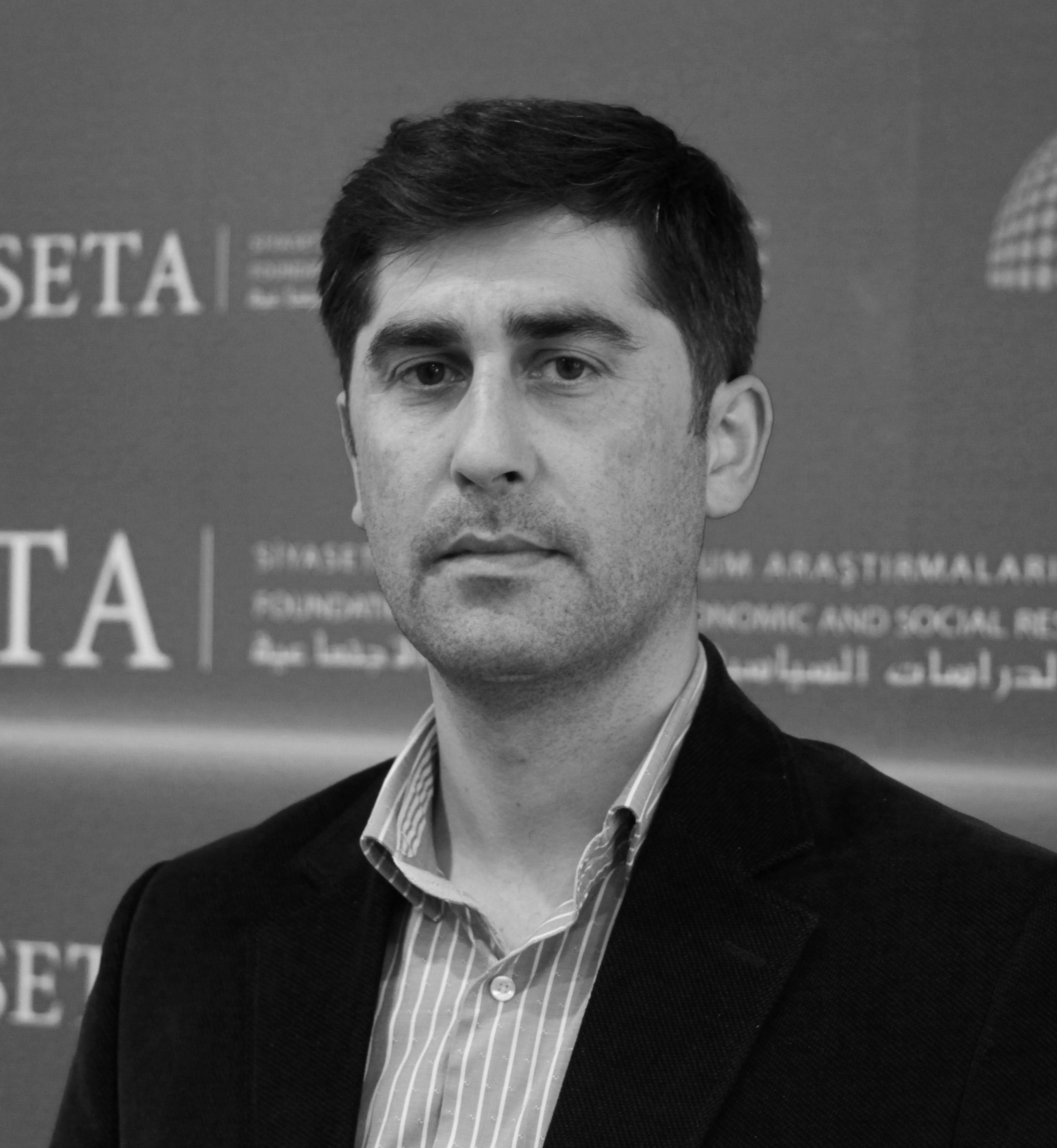On March 31,
the local elections profoundly transformed the landscape of Turkish politics. For the first time since its ascendancy in 2002, the Justice and Development (AK Party) concluded the elections as the runner-up, marking a significant shift in the nation’s political dynamics.
The Republican People's Party (CHP) emerged as the leading party for the first time since its 1977 victory, capturing a substantial portion of the vote. The AK Party did not secure any major cities or provincial municipalities in the Aegean region, the country’s westernmost area, and conceded the strategic Marmara region to the CHP, managing to win only two metropolitan municipalities. In the traditionally supportive Black Sea region, it no longer maintained its dominant status, losing many provinces and districts either to the CHP or other parties.
A similar trend was observed in the Mediterranean region, where the AK Party managed to lead in only three provinces. In the southeastern and eastern Anatolia regions, it was unable to surpass its traditional rival, the Green Left Party (YSP), informally known as the Peoples' Equality and Democracy Party (DEM Party), a successor of the Peoples’ Democratic Party (HDP). Notably, the AK Party lost approximately 4 million votes in this election, experiencing a turnout of 78% – the lowest in the past two decades – while losing 2 million votes from the 2023 election when it won the presidency. On the other hand, the CHP increased its vote count by about 4.5 million from the previous local elections and received 3.5 million more votes than in the 2023 elections it lost.
This outcome signifies that the AK Party has lost its dominant party position, marking its first electoral defeat since 2002.
Why did AK Party lose?
Several factors contributed to the AK Party’s unprecedented second-place finish in the elections, which can be broadly divided into two categories. The first category encompasses issues directly related to everyday life, particularly the economy, that influenced voter behavior and motivation. Despite Türkiye’s effective response to the COVID-19 pandemic in 2020, the country struggled to mitigate the pandemic-induced economic downturn. The depreciation of the Turkish lira against the dollar led to soaring costs and a consequent loss of price stability, resulting in a significant increase in inflation. Türkiye emerged as the country with the highest rate of food inflation.
Furthermore, the devastating earthquake in 2023, impacting 11 provinces, inflicted more than $100 billion in damages on the Turkish economy. The government’s pension policies, especially leading up to the 2023 general elections, exacerbated the economic crisis. The persistent economic turmoil and the anticipation that it would not be resolved quickly fueled discontent among voters. The pension debate, affecting approximately 16 million people and characterized by the government’s decision to opt for the lowest possible pension, sparked widespread resentment and anger, particularly among lower-income voters. Consequently, the economic distress not only reduced voter turnout but also significantly influenced those eager to hold the government accountable, predominantly within the AK Party’s support base.
The AK Party’s downgrade to second place was not solely due to economic factors. Had
the economy been the only consideration, the party’s victory in the 2023 elections would have been unlikely. Additionally, the party faced challenges with its candidate selection process, notably in the selection of metropolitan mayor candidates. The AK Party’s decision to nominate the same candidates in competitive provinces led to public dissatisfaction and surprise among its supporters. In Istanbul, for example, where the AK Party traditionally held strong support, its preference for maintaining the status quo over initiating change resulted in the CHP securing victories in many districts. Conversely, the CHP demonstrated boldness in its candidate selection, opting for younger candidates and those outside its conventional ideological spectrum, including nationalist candidates, which contributed to its success in numerous districts in Ankara.
Another challenge for the AK Party was its competition with conservative candidates, particularly the faltering alliance with the New Welfare Party (YRP), another conservative party from the 2023 presidential election coalition, which led to a decline in votes in several cities. Notably, the YRP’s opposition to the AK Party on various issues, such as the Gaza and economy, became a point of contention among conservative voters.
Additionally, the AK Party’s inability to craft a compelling overarching narrative for the elections was a significant setback. Traditionally, “security” has been a key theme successfully employed by President Recep Tayyip Erdoğan to mobilize voters. Despite economic challenges, voters often prioritized security issues, feeling uneasy with the opposition’s approach to security. However, during the local elections, the party failed to establish a persuasive discourse that could motivate voters. The alliance with the YSP party, particularly in Istanbul, did not sufficiently challenge the CHP’s appeal nor position the AK Party as the sole option for nationalist voters. Beyond security, the primary narrative of the election failed to engage or concern the electorate. Even the legitimate concern of an earthquake in Istanbul did not resonate as a compelling issue.
The second category of reasons for the AK Party’s loss involves the broader transformation of socio-political, identity and ideological dynamics within Türkiye. A notable aspect of this transformation is the blurring of political lines and the diminishing distinction between parties. Traditionally, party identities have been polarizing, significantly shaping voter behavior. However, the 2024 local elections highlighted a shift from this pattern, with the CHP, traditionally a staunch defender of secularism, adopting a more flexible stance. The CHP’s selection of candidates outside its traditional ideological scope, including those with nationalist leanings and those who highlighted their religiosity, represented a strategic move. Consequently, the AK Party, known for its conservative and religious stance, found itself competing not only against the CHP but also against the YRP, which appeals to a similar voter base.
Political consequences of the election
The local elections are poised to have far-reaching impacts on Türkiye’s political economy. A notable outcome is the CHP’s ascendancy to become the leading party, surpassing the AK Party in the number of municipalities won. This victory not only cements the CHP’s role as a formidable leader among opposition and social-political groups but also positions it advantageously for the upcoming presidential and parliamentary elections in 2028. Governing cities that contribute to 78% of the nation’s GDP production grants the CHP a strategic edge, enabling it to significantly influence the economic landscape and establish an alternative power domain. Conversely, the AK Party faces the challenge of a shrinking conservative economic ecosystem, attributed to the loss of its traditional political economy stronghold.
Moreover, the election heralds a shift in the political paradigm, characterized by evolving positions and identities within nationalism, conservatism, religiosity and secularism. Such a transformation facilitates fluidity in party allegiances, potentially giving rise to a dual-bloc political scenario. Consequently, the CHP might find itself adopting more right-leaning policies to retain its newfound leadership position and might reconsider its political and social ideologies. Simultaneously, the AK Party is tasked with reevaluating and potentially redefining its core values to regain support and prevent the erosion of its voter base to emerging parties. This recalibration of political stances, moving away from extremes of secularism or nationalism, could serve as a catalyst for reducing the stark polarization that has characterized Turkish politics, paving the way for a more unified national discourse.
AK Party’s change
The recent election results present significant learning opportunities for the AK Party. President Erdoğan has assured the public that
the party will take the necessary lessons and address the identified issues following a post-election review with his team. However, the strategy for implementing these changes remains somewhat indefinite at this juncture. Looking ahead, it appears two primary schools of thought will influence the party’s direction. The first advocates for a progressive and reformist approach that seeks to rejuvenate the AK Party’s original principles and political paradigm. This faction believes that a return to the party’s roots of reform, democracy and progressivism is key to regaining the support of those who have drifted away. The second school of thought leans towards maintaining the current course, advocating for continuity over change.
President Erdoğan seems inclined toward a thorough overhaul, planning swift actions including reshuffling party leadership to realign the AK Party with its foundational values of reform and progress. This approach acknowledges that the dilution of the party’s influence within the governmental framework, especially under the presidential system, has contributed to its recent electoral setback.
Erdoğan is expected to initiate measures aimed at reinforcing the party’s governmental role.
For the AK Party and President Erdoğan, the path forward is fraught with challenges. The most critical factor in navigating this path successfully will be the effective management of the economy and steering it toward recovery from the prevailing crisis.
[Daily Sabah, April 5, 2024]








